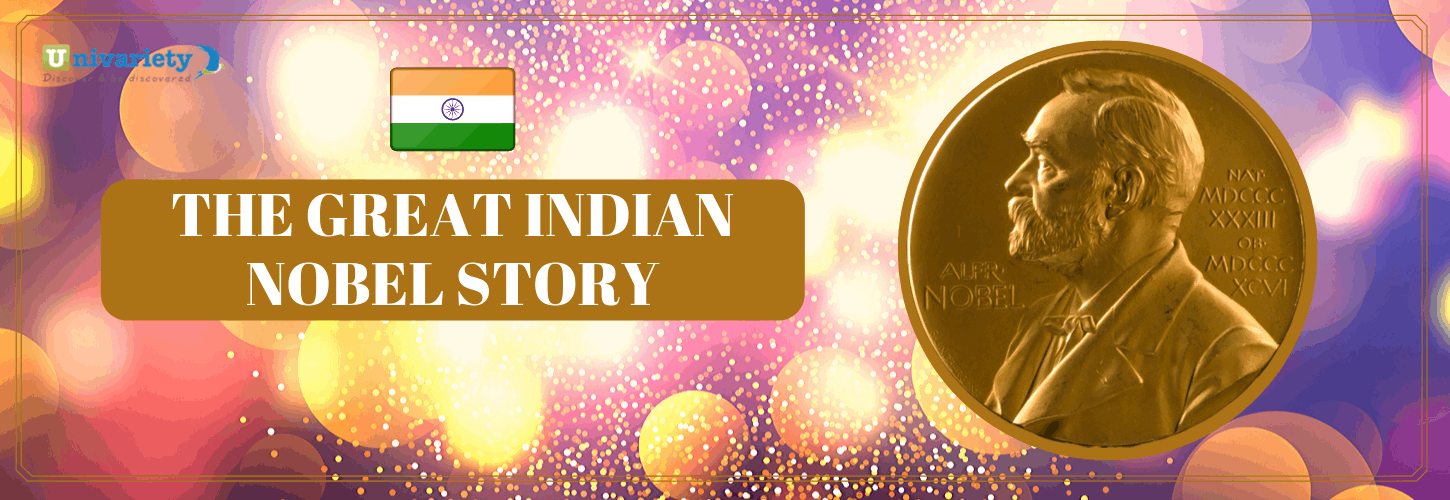It’s a proud moment for India as the nation celebrates the Nobel Prize in Economics victory of Abhijit Banerjee who shared the coveted recognition with Esther Duflo and Michael Kremer for an experimental approach to alleviating global poverty. The researchers spent nearly two decades transforming development economics.
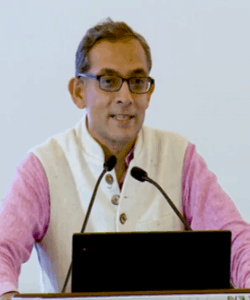 In the words of the researchers, over 700 million people live on extremely low incomes and every year 5 million children die before their fifth birthday and their research offers immense help to overcome this menace.
In the words of the researchers, over 700 million people live on extremely low incomes and every year 5 million children die before their fifth birthday and their research offers immense help to overcome this menace.
As the success of Abhijit Banerjee and the Nobel Prize add a new page to the Great Indian Nobel Story, let’s take a look at the Indian Nobel Laureates over the past years.
Nobel Prize Winners From India
1913 – Rabindranath Tagore – Literature
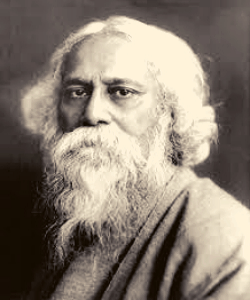 Popularly known as Gurudev, Rabindranath Tagore was the first Indian ever to receive a Nobel Prize. He was awarded the Nobel Prize for Literature in recognition of his work Gitanjali, a collection of poems, in 1913. The Nobel committee called his work profoundly sensitive, fresh and beautiful.
Popularly known as Gurudev, Rabindranath Tagore was the first Indian ever to receive a Nobel Prize. He was awarded the Nobel Prize for Literature in recognition of his work Gitanjali, a collection of poems, in 1913. The Nobel committee called his work profoundly sensitive, fresh and beautiful.
Gitanjali, Gora, Ghare-Baire, Rabindra Sangeet, Amar Shonar Bangla, and the National Anthem Jana Gana Mana are among his notable works. Tagore was a writer, song composer, playwright, essayist, painter, and founder of the famous Santiniketan which later came to be known as Vishwabharati University.
1930 – C. V. Raman – Physics
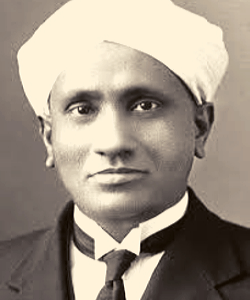 C V Raman made the country proud with the first Nobel Prize in Physics. He was awarded the prize for his work on the scattering of light and for the discovery of the Raman Effect. The theory discovered explains the change in the frequency of light passing through a transparent medium.
C V Raman made the country proud with the first Nobel Prize in Physics. He was awarded the prize for his work on the scattering of light and for the discovery of the Raman Effect. The theory discovered explains the change in the frequency of light passing through a transparent medium.
He was the recipient of many honorary awards and titles such as Sir, Knight Bachelor, Hughes Medal, Bharat Ratna, Lenin Peace Prize.
1979 – Mother Teresa – Peace
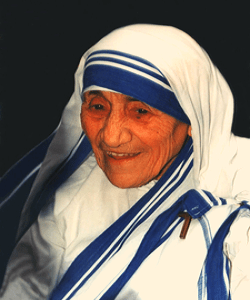 The Nobel Peace Prize was awarded to Mother Teresa for her selfless service and unique devotion, not only to helpless fellow Indians but also to the cause of world peace.
The Nobel Peace Prize was awarded to Mother Teresa for her selfless service and unique devotion, not only to helpless fellow Indians but also to the cause of world peace.
She came to Kolkata in 1929 as a missionary and was deeply moved by the dire conditions of the poor and sick. This prompted her to start a new congregation, Missionaries of Charity. The main centre of her activity, Nirmal Hriday served many lepers and drug addicts.
1998 – Amartya Sen – Economic Sciences
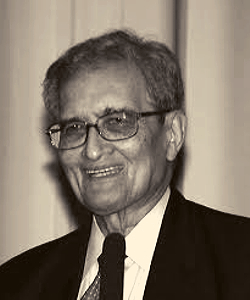 Prof. Amartya Sen became the first Asian to receive the Nobel Prize for Economics in the year 1998. He is a pioneer in Welfare Economics and made outstanding contributions on issues like poverty, famine, and other social issues. With many books and papers to his credit, Amartya Sen was also a recipient of many notable awards including Bharat Ratna, National Humanities Medal, and Johan Skytte Prize in Political Science.
Prof. Amartya Sen became the first Asian to receive the Nobel Prize for Economics in the year 1998. He is a pioneer in Welfare Economics and made outstanding contributions on issues like poverty, famine, and other social issues. With many books and papers to his credit, Amartya Sen was also a recipient of many notable awards including Bharat Ratna, National Humanities Medal, and Johan Skytte Prize in Political Science.
2014 – Kailash Satyarthi – Peace
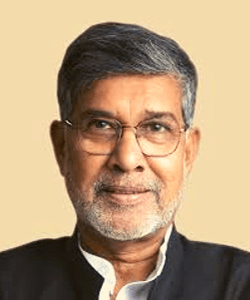 Kailash Satyarthi got the Nobel Prize for his struggle against the suppression of children and young people and for the right of all children to education. He was awarded The Aachener International Peace Prize by the German Government, Robert F Kennedy Human Rights Award, and Harvard Humanitarian Award for his contribution.
Kailash Satyarthi got the Nobel Prize for his struggle against the suppression of children and young people and for the right of all children to education. He was awarded The Aachener International Peace Prize by the German Government, Robert F Kennedy Human Rights Award, and Harvard Humanitarian Award for his contribution.
Nobel Prize Winners of Indian Origin
1968 – Har Gobind Khorana – Medicine
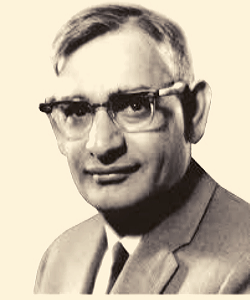 Hargobind Khorana was awarded the Nobel Prize for Medicine in 1968 for his interpretation of the genetic code and its function in protein synthesis.
Hargobind Khorana was awarded the Nobel Prize for Medicine in 1968 for his interpretation of the genetic code and its function in protein synthesis.
The other honours bestowed on him included the Louisa Gross Horwitz Prize, the Lasker Foundation Award for Basic Medical Research, the Willard Gibbs Medal, the Gairdner Foundation Annual Award, and the Paul Kayser International Award of Merit in Retina Research.
1983 – Subrahmanyan Chandrasekhar – Physics
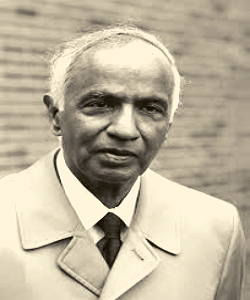 Dr S. Chandrashekhar was the nephew of Nobel laureate Sir C V Raman. The former wrote many books on Astrophysics and Stellar Dynamics.
Dr S. Chandrashekhar was the nephew of Nobel laureate Sir C V Raman. The former wrote many books on Astrophysics and Stellar Dynamics.
He got the Nobel Prize for his theoretical studies of the physical processes of importance to the structure and evolution of the stars.
2009 – Venkatraman Ramakrishnan – Chemistry
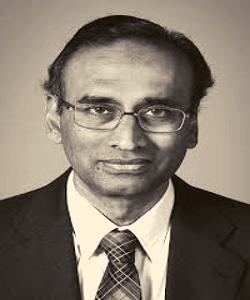 Ramakrishnan won the Nobel Prize in Chemistry for his studies of the structure and function of the ribosome. He is internationally recognised for the determination of the atomic structure of the 30S ribosomal subunit. The notable recognitions of Ramakrishnan include the Louis-Jeantet Prize for Medicine and the Datta Lectureship and Medal of the Federation of European Biochemical Societies (FEBS). He also won the Heatley Medal of the British Biochemical Society.
Ramakrishnan won the Nobel Prize in Chemistry for his studies of the structure and function of the ribosome. He is internationally recognised for the determination of the atomic structure of the 30S ribosomal subunit. The notable recognitions of Ramakrishnan include the Louis-Jeantet Prize for Medicine and the Datta Lectureship and Medal of the Federation of European Biochemical Societies (FEBS). He also won the Heatley Medal of the British Biochemical Society.
All the Indian Nobel awardees are a testimony to the dedication and steadfast resolve that helped them research and scale up their careers. Let’s celebrate their success and also understand the need for guidance at an early age that can make someone successful in their careers.
Virtual Internship Program
With the outbreak of COVID-19 and lockdown across the country, we hope you’re home and safe! Spare two hours from your routine and take this fun online internship! Virtual Internship Program is an interesting and online immersive program that allows you to experience 18 different professions, solve their tasks and understand their world. Science, Architecture, Fashion, Law, Accounts and more – there are 18 career options for you to explore.
The pandemic might have changed a lot of your plans, but that leaves you with extra time to prepare for them. Spend your time wisely to make sure you have a bright future.
Seek the help of our expert career counselling and guidance advisors today!


